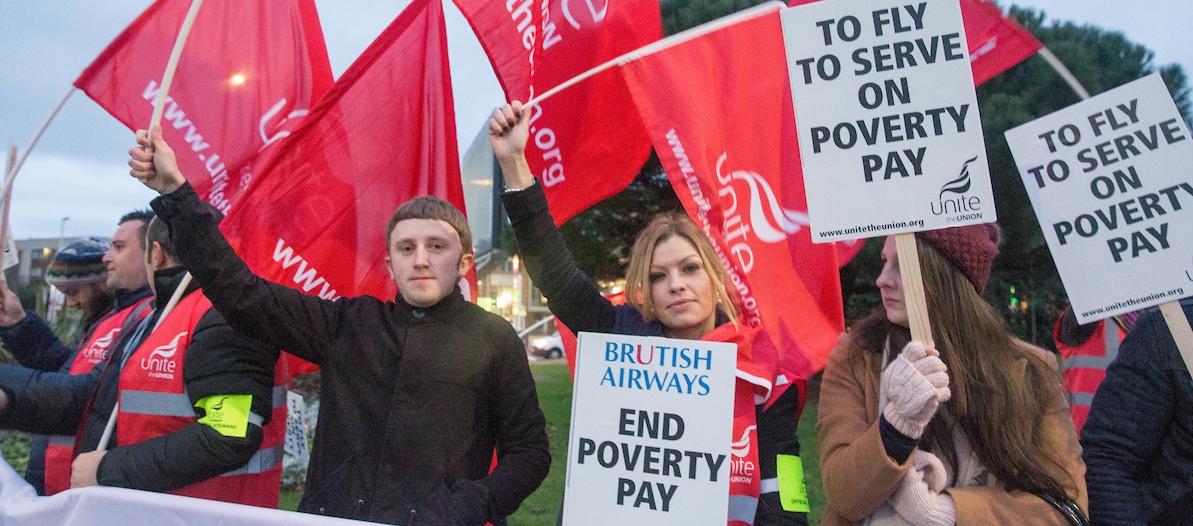The not-so rich list
Chantal Chegrinec, Friday, October 17th, 2014Forget The Sunday Times Rich List, millions of ordinary Britons are on the breadline. Here, some of them share their stories:
1 Ahmed works seven days a week for a leading newspaper and magazine retailer. He’s not had a pay rise in three years and wants a fair wage for all his hard work.
2 Fair pay for Tom would mean he could afford his weekly food shop without constantly scrimping. He works hard but all he seems to be doing is paying bills with no money left for himself.
3 Lisa is a single parent and has worked full time since her son was two. She had to give up her job as a nurse because pressure from her bosses to be â€flexible’ ended up costing her loads in childcare. Lisa went back to school to study as a teacher, working as a nurse to pay her way. She now teaches at a college but money is tight.
4 Andrew is fuming. Hard work in the construction industry isn’t even paying the bills. He’s had no pay rise for five years and was then given a paltry one per cent last year. Andrew wants a government that supports the working man.
5 If Trevor had fair pay he would be able to eat properly and not struggle to pay his bills every month. He’s living like a recluse and doesn’t even have the money to see his friends. It feels to Trevor like he’s being punished for something.
6 Mohammad has worked as a parts advisor for a big car manufacturer since 2004. He started on £6.97 an hour. After 10 years of hard graft his hourly rate now stands at just £7.89. He thinks it’s time this government started to look after working class people – not the rich.
7 Tony’s a dockworker. Fair pay would mean he could keep up with his rapidly rising bills. Caring for a disabled wife and paying a mortgage is hard when your wages aren’t keeping pace with rising living costs.
8 Krystyna works full time, but lives on the breadline. She says not having money for emergencies and having to rely on foodbanks on occasion, leaves your dignity in tatters.
9 Selma was forced to leave her job as a youth worker after 13 years because she could no longer afford the childcare. She now finds herself as vulnerable as the families she helped on the doorstep of David Cameron’s Witney constituency in Oxfordshire. She and her kids lived without hot water and heating for three years. Now the house needs to be sold because she can’t find a job that pays enough for her family to live on.
10 Lesley works in cleaning. Fair pay would mean she could live and not just exist and give her heat and food on a daily basis.
11 George has got a job but that didn’t stop his home from being repossessed. Low wages are stopping him from getting ahead in life. He barely has enough to eat three square meals a day. If he had fair pay he could give his family a better future and move out of his parents’ house.
12 David is stressed. He works between 70-75 hours a week for a road haulage firm, but, on his calculations, is only paid £5.70 an hour – less than the national minimum wage! When he tries to speak to his boss about it he’s told, “There’s the door you know what to do.”
13 Carrie is a single mum, working as a school learning assistant in Edinburgh. Money is so tight that most months she’s relying on Wonga pay day loans to get by and feed her daughter.
14 Martin works in logistics. If he had fair pay he would support the local economy. He’d buy a new cooker and fridge, maybe even a car and he wouldn’t be afraid to get a mortgage.
15 Darren would finally pay off his overdraft and get on top of his bills. He would also give his child a better life with more outdoor activities. Right now, he’s working 70 hours a week – and he still doesn’t have enough to get by.
This article first appeared in the Daily Mirror, Friday October 17
Don’t forget – Britain wants a pay rise – march and rally, tomorrow.
 Like
Like Follow
Follow


